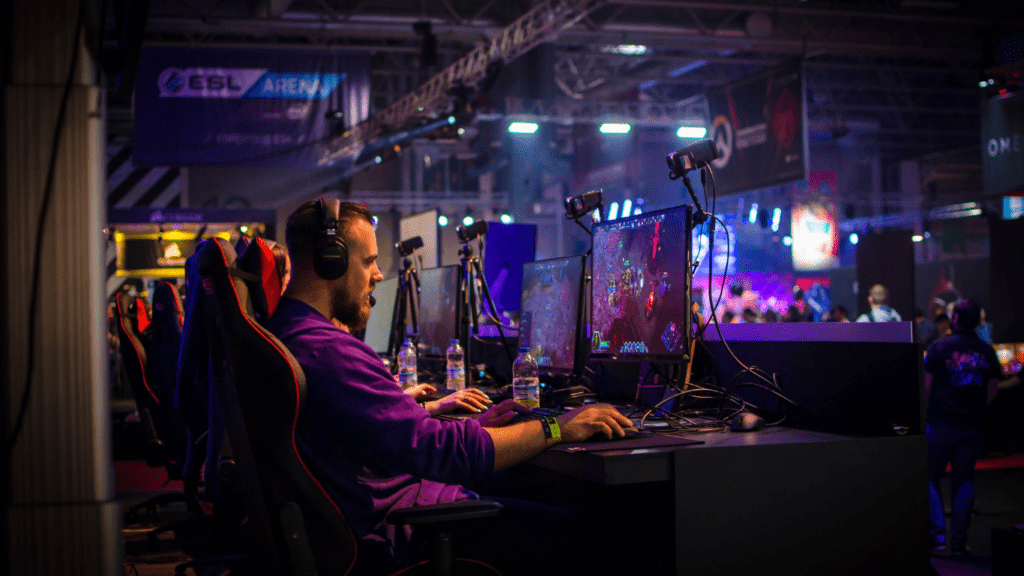Venturing into the dynamic realm where traditional sports betting meets the rapidly evolving landscape of esports wagering is a thrilling journey. As an avid enthusiast of both traditional sports and esports, I’ve delved into the intricate connections between these two distinct yet interconnected betting markets. The fusion of age-old sports betting practices with the futuristic realm of esports presents a unique opportunity for both seasoned bettors and newcomers alike.
Navigating through the synergies and disparities between traditional sports betting and esports gambling unveils a fascinating tapestry of opportunities and challenges. From understanding the diverse fan bases to analyzing the impact of technological advancements on betting trends, the convergence of these markets offers a wealth of insights waiting to be explored. Join me as we unravel the complexities and nuances of the intersection of traditional and esports betting markets in this captivating exploration.
Overview of Traditional Betting Markets
Traditional betting markets have long been a cornerstone of the gambling industry, encompassing a wide array of sports such as football, basketball, and horse racing. These markets have a rich history, with established norms and conventions that have shaped the way betting is approached and conducted.
In traditional sports betting, enthusiasts place wagers on the outcomes of various events, ranging from the winner of a match to more intricate propositions like point differentials or player performances. The allure of traditional betting lies in its familiarity and the thrill of predicting the outcome of real-world sporting events.
Bookmakers play a crucial role in traditional betting markets, setting odds and accepting wagers from bettors. The odds offered reflect the perceived likelihood of an outcome, balancing risk and reward for both parties involved. Over time, traditional betting has evolved to incorporate online platforms, making it accessible to a global audience 24/7.
The traditional betting landscape is characterized by its robust regulatory frameworks, which vary from country to country but generally aim to ensure fair play, responsible gambling, and the integrity of sports competitions. These regulations are designed to protect both bettors and the sports industry while fostering a safe and transparent betting environment.
As the traditional betting sector continues to adapt to changing technologies and consumer preferences, it remains a cornerstone of the broader gambling ecosystem, offering a blend of tradition, excitement, and the chance to test one’s predictive skills against the odds.
Rise of Esports Betting
Esports betting has witnessed a remarkable surge in popularity in recent years. As traditional sports betting enthusiasts seek new avenues for entertainment and engagement, the dynamic and digital nature of esports has captivated a rapidly growing audience. With the global esports market valued at over $1 billion and showing no signs of slowing down, the rise of esports betting is reshaping the gambling landscape.
I’ve observed a substantial increase in the number of betting platforms offering esports markets, catering to the demands of a tech-savvy generation drawn to competitive gaming. The accessibility and inclusivity of esports tournaments have transcended geographical boundaries, creating a diverse and enthusiastic community of esports enthusiasts worldwide.
Esports betting presents a unique opportunity for traditional sportsbooks to diversify their offerings and attract a younger demographic. By leveraging cutting-edge technologies and innovative wagering options, bookmakers are enhancing the overall betting experience for both seasoned gamblers and newcomers alike.
The fusion of traditional and esports betting markets signifies a pivotal shift in the gambling industry, where innovation and adaptability are paramount. As esports continues to gain mainstream recognition and acceptance, the convergence of these two worlds presents endless possibilities for strategic partnerships, market expansion, and the evolution of sports betting as we know it.
Comparison Between Traditional Betting and Esports Betting
When comparing traditional betting with esports betting, it’s essential to consider several key factors that distinguish these two markets.
Market Size and Growth
In the realm of market size and growth, traditional sports betting has historically dominated the industry, with established sports like football, basketball, and horse racing attracting billions in wagers annually. In contrast, esports betting, while rapidly growing, operates on a smaller scale compared to traditional sports. Despite this, the esports betting market has shown exponential growth in recent years, propelled by the surge in esports popularity and the increasing recognition of competitive gaming as a legitimate sport.
Regulation and Legality
Regarding regulation and legality, traditional sports betting is subject to stringent regulations in many jurisdictions, with laws governing the industry to ensure fairness, transparency, and responsible gambling practices. In contrast, the landscape of esports betting regulation is still evolving, with varying degrees of oversight across different regions. The nascent nature of esports betting has led to challenges in standardizing regulations globally, posing complexities for both operators and bettors navigating this relatively new territory.
Convergence of Traditional and Esports Betting
Discussing the convergence of traditional sports betting with esports wagering unveils a dynamic landscape brimming with opportunities for market expansion and technological innovation. The amalgamation of these two distinct realms presents a transformative shift in the gambling industry, offering a blend of familiar betting practices with cutting-edge developments in competitive gaming. Traditional betting, with its established market dominance, intersects with the burgeoning world of esports betting, where rapid growth and a tech-savvy audience drive the evolution of new betting platforms.
The fusion of traditional and esports betting markets paves the way for strategic partnerships that capitalize on the complementary strengths of both sectors. As traditional sports betting caters to a vast market size rooted in longstanding fan engagement, esports betting emerges as a nimble counterpart, agile in its adaptation to the preferences of a younger, digitally native demographic. This convergence not only broadens the scope of wagering options but also offers a gateway for traditional sportsbooks to tap into the lucrative realm of competitive gaming.
In comparing traditional sports betting with esports wagering, it becomes evident that while the former currently dominates in market size and regulatory maturity, the latter, although operating on a smaller scale, is primed for exponential growth. The regulatory landscape for traditional sports betting, characterized by stringent oversight ensuring fairness and transparency, contrasts with the evolving nature of esports betting regulations, presenting challenges and opportunities for stakeholders navigating this evolving terrain.
The convergence of traditional and esports betting markets signals a pivotal moment in the gambling industry’s evolution, heralding a future where technological advancements and shifting consumer preferences intersect to shape the landscape of sports wagering. This intersection not only underscores the adaptability of the industry but also underscores the importance of strategic foresight in embracing the transformative potential of esports betting alongside its traditional counterpart.
Opportunities for Growth and Innovation
Expanding upon the integration of traditional sports betting with esports wagering opens up a realm of opportunities for growth and innovation within the betting industry. The fusion of these two distinct markets creates a unique landscape ripe for advancements and strategic developments.
- Strategic Partnerships:
By aligning traditional sports betting entities with the burgeoning realm of esports wagering, strategic partnerships can capitalize on each market’s strengths. For example, leveraging the extensive reach and established credibility of traditional sportsbooks along with the tech-savvy appeal and dynamic nature of esports can result in innovative collaborations that cater to a diverse audience. - Market Expansion:
The convergence of traditional and esports betting markets not only enriches the overall betting experience but also opens doors for market expansion. This amalgamation allows for the introduction of new betting options, enticing promotions, and engaging formats that cater to a wider demographic, thereby expanding the reach of the industry. - Technological Advancements:
The intersection of traditional betting practices with esports wagering brings forth a wave of technological advancements. Integrating cutting-edge developments in competitive gaming, such as live streaming, real-time betting options, and immersive gameplay experiences, paves the way for a technologically enhanced betting environment that appeals to the modern bettor. - Innovative Wagering Options:
Embracing the fusion of traditional and esports betting markets fosters an environment where innovative wagering options can thrive. From unique prop bets tailored to esports tournaments to interactive betting features that enhance viewer engagement, the marriage of these markets sparks creativity and encourages the exploration of novel betting formats. - Sports Betting Evolution:
The seamless integration of traditional sports betting with esports wagering signifies a pivotal shift in the evolution of the sports betting industry. This evolution not only adapts to the changing preferences of the younger demographic drawn to esports but also sets the stage for continuous innovation, reshaping the future of sports wagering as a whole.
The harmonious blend of traditional and esports betting markets presents a canvas for growth and innovation, where strategic collaborations, market expansion, technological advancements, and inventive wagering options converge to shape the future landscape of the betting industry.



 Andrewayne Collinster – An industry veteran with a sharp analytical mind, Andrewayne specializes in betting analysis and sports trends. His articles provide a deep dive into understanding odds, game statistics, and market shifts, offering bettors a data-driven approach to wagering. Andrewayne’s expert analysis ensures that readers stay ahead of the curve by making well-informed bets that are based on sound strategy rather than mere luck.
Andrewayne Collinster – An industry veteran with a sharp analytical mind, Andrewayne specializes in betting analysis and sports trends. His articles provide a deep dive into understanding odds, game statistics, and market shifts, offering bettors a data-driven approach to wagering. Andrewayne’s expert analysis ensures that readers stay ahead of the curve by making well-informed bets that are based on sound strategy rather than mere luck.

